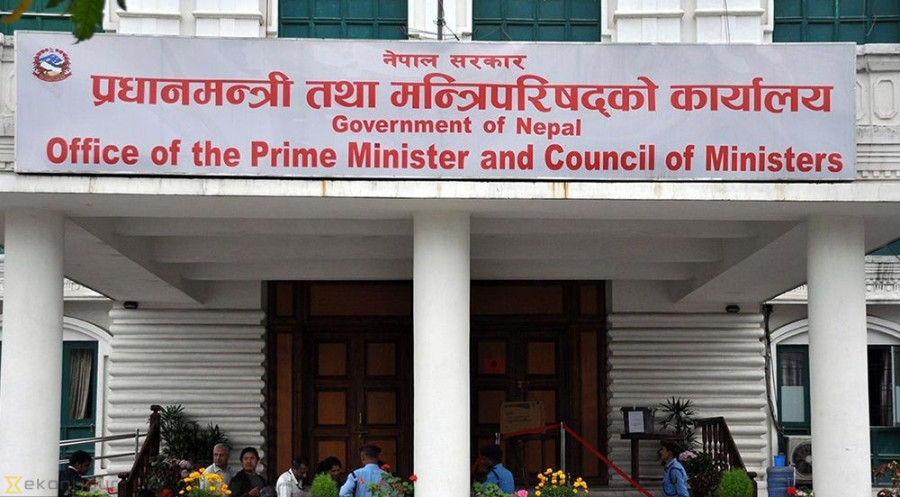National
Intelligence department announces vacancies but officials have security concerns
Officials are especially concerned about the doing away of covert operatives, which forces them to buy intelligence on a piecemeal basis.
Anil Giri
For the first time in its history, the National Intelligence Department, the country’s sole intelligence agency, on Friday announced vacancies for 232 positions of assistant informers through the Public Service Commission.
Previously, the intelligence department itself would announce vacancies and conduct tests, but as per the new constitution, those who receive salaries and perks from the state should be selected through the Public Service Commission via a competitive examination. This means that the NID will now be an inclusive institution, just like other government entities.
This new provision, however, has drawn mixed reactions from the intelligence community. Though ensuring inclusiveness in the institution is good, publishing the names of those chosen in the state-owned newspaper Gorkhapatra—as per Public Service Commission regulations—has security concerns, say former intelligence officials.
Of the total, 128 positions will be filled through open competition—33 under the Adivasi/Janajati quota, 29 under Madhesi, 21 under Women, 16 under Dalit and 5 from backward areas like Achham, Kalikot, Jajarkot, Jumla, Dolpa, Bhajang, Bajura, Mugu and Humla.
“For the first time in the history of the NID, we have opened vacancies under various categories as per the spirit of the constitution and we received rousing feedback on day one itself,” said Ganesh Adhikari, head of the NID.
“This is the first time that applicants will fill out forms online. Upon completion of the hiring process, these newly recruited intelligence sleuths will be deployed to look after border intelligence and counter-terrorism,” said Adhikari.
Around 4,000 candidates have already applied since the opening was announced, leading the NID’s server to crash.
“If this enthusiasm continues for another 37 days, we will receive a record number of applicants,” said Adhikari, who is preparing to set up a counter-intelligence wing inside the department under the proposed Nepal Special Service Act.
There has, however, been a lot of criticism about the intelligence agency ever since the NID was shifted under the purview of the Prime Minister’s Office and the Special Service Act formulated. Opinions are divided on the Special Service Act, which governs all aspects of intelligence gathering.
The opposition Nepali Congress has expressed its reservation over some of the provisions that allow the NID to intercept private telephonic or digital conversations between individuals. Adhikari, however, said that interception is not a new thing and that the law was only proposed to “manage” interception.
The ruling party has supported the proposed law, saying that there is a dire need for the NID to check suspicious activities of foreigners that are detrimental to national security, support terrorism, cross-border and other illegal activities that are against Nepal’s constitution, laws and national interest.
However, the new call for vacancies has done away with the hiring of ‘covert operatives’, diminishing the prospects for qualitative intelligence gathering, said former NID chief Devi Ram Sharma. Covert operatives are members of the public in sensitive positions chosen by the NID for intelligence gathering possibilities. These operatives do regular jobs but are also on the NID payroll.
“Earlier, a certain number of vacancies was reserved for ‘covert’ positions but after the promulgation of the constitution in 2015, this ‘latent entry’ in all government services was stopped,” said Sharma. “And now, the institution is suffering.”
The NID now purchases information through individual agents on a per-case basis, he said.
“The government needs to pave the way for latent entry in intelligence gathering. Otherwise, qualitative, credible and authentic intelligence gathering will suffer,” said Sharma.
According to a secretary at the Prime Minister’s Office who did not wish to be named, covert operatives were widely misused after the restoration of democracy. Successive home ministers hired their family members, relatives, and party cadres as covert operatives to place them on the state payroll. This only affected the functioning of the NID, which is why latent entry was done away with, said the secretary.




 8.54°C Kathmandu
8.54°C Kathmandu















